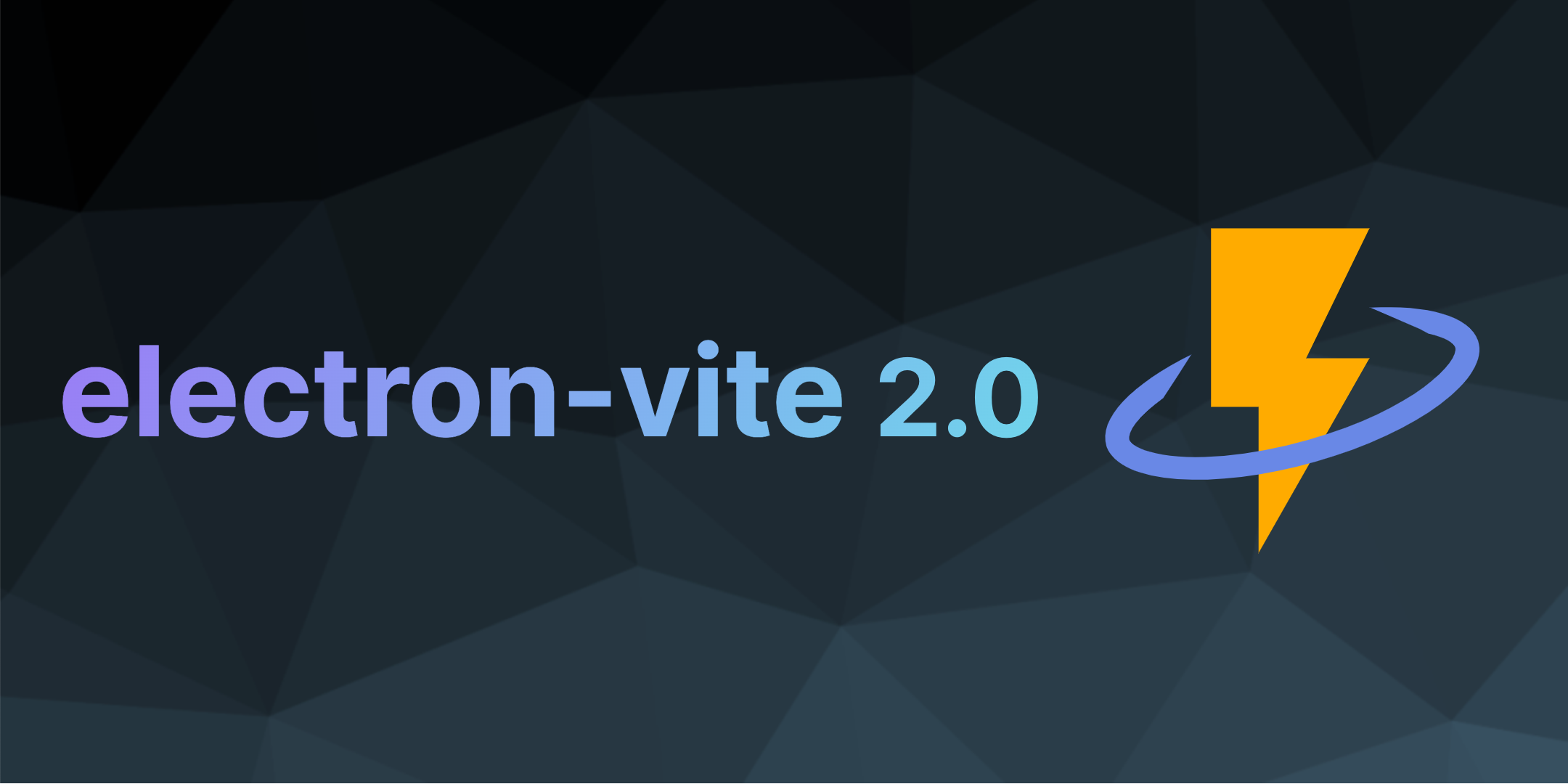毫秒镜像
木雷坞 · MLIEV
January 09, 2024

electron-vite is a build tool that aims to provide a faster and leaner development experience for Electron.
electron-vite 1.0 was released more then a year, and has gradually become a part of the Electron development ecosystem. Thanks to Vite's excellent performance and development experience. On this basis, electron-vite has done a lot of design and optimization work to make it more friendly to Electron development, such as Hot Reloading, Source Code Protection, Debugging and Asset Handling Optimization, etc. In addition, new documentation is released to help developers, you can go to electron-vite.org to enjoy the docs, and create-electron templates are also provided to help you use your favorite frameworks (such as Vue, React, Svelte and Solid) to scaffold an Electron project.
Today, electron-vite 2.0 is out! electron-vite now properly supports Vite 5 and supports ESM in Electron.
Quick links:
If you're new to electron-vite, we recommend reading first the Getting Started and Development guides.
You can use npm create @quick-start/electron to scaffold an Electron project with your preferred framework.
electron-vite no longer supports Node.js 14 / 16 / 17 / 19, which reached its EOL. Node.js 18 / 20+ is now required.
electron-vite is now published as ESM, and the CJS export will be removed in version 3.0 as vite 6 will no longer support CJS.
For most projects, the update to electron-vite 2 should be straight forward. If you run into trouble, you can read the Troubleshooting Guide.
electron-vite 2 now properly supports Vite 5. If you are upgrading to Vite 5, it is recommended to review Vite's Migration Guide before upgrading. Additionally, electron-vite 2 removes compatibility support for Vite 3.
On top of Vite 5's build performance improvements, electron-vite 2 enables Vite's SSR build for the main process and preload scripts, skips some plugins for the modern web, and makes some optimizations such as package.json caching, which improves build performance and is more suitable for Electron.
Electron supports ES modules beginning in Electron 28. electron-vite 2.0 also supports using ESM to develop and build your Electron applications.
There are two ways to enable ESM for electron-vite, add "type": "module" to the nearest package.json, or set build.rollupOptions.output.format to es in the config file. But before that, you need to read Migrating to ESM guide.
electron-vite has made some compatibility with ES Modules and CommonJS syntax, allowing developers to freely switch between the two syntaxes with minimal migration work. But it should be noted that Source Code Protection currently only supports CommonJS.
In electron-vite 2.0, passing arguments to Electron applications is very simple. You can append a -- after electron-vite CLI with the arguments to be passed.
"scripts": {
"dev": "electron-vite dev -- p1 p2"
}Learn more about Passing Arguments to Electron App.
electron-vite can now share environment variables between the main process and renderers. Variables prefixed with VITE_ are exposed to all processes.
SOME_KEY=123 # not available
MAIN_VITE_KEY=123 # only main process available
PRELOAD_VITE_KEY=123 # only preload scripts available
RENDERER_VITE_KEY=123 # only renderers available
VITE_KEY=123 # all available // [!code warning]